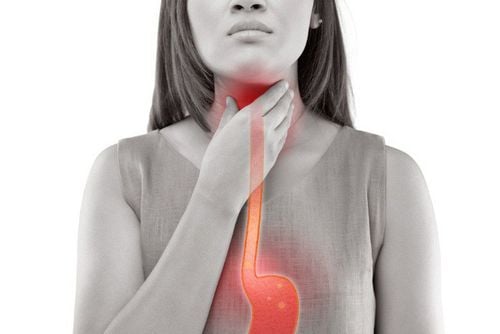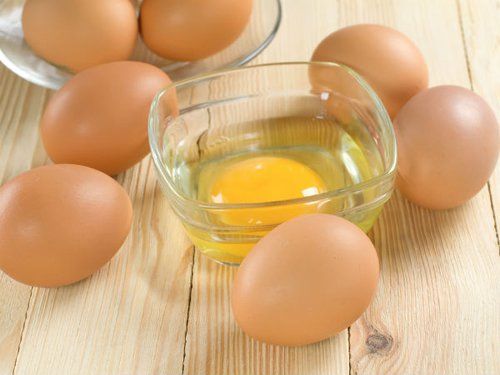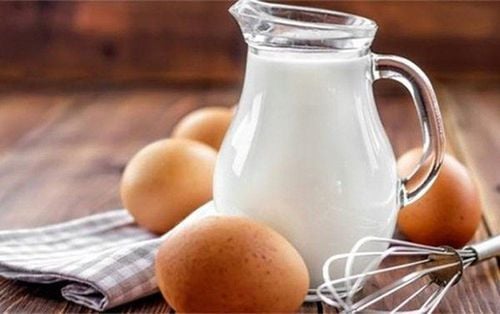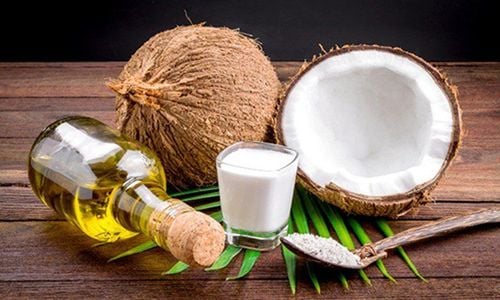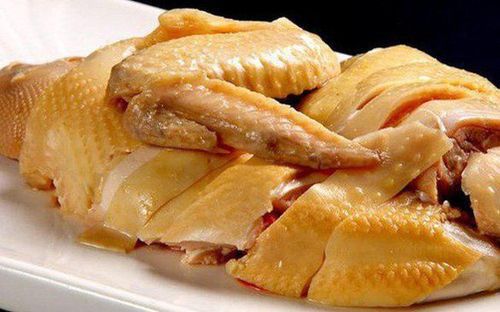Niacin, also known as vitamin B3 (nicotinic acid), is one of the eight essential B vitamins. Like all B vitamins, niacin plays a role in converting carbohydrates into glucose, metabolizing fats and proteins, and maintaining a healthy nervous system. It also assists in the production of stress and sex-related hormones and supports improved blood circulation and cholesterol levels. Below, we explore 16 common foods rich in niacin that you can incorporate into your daily meals.
1. What is Niacin (Vitamin B3)?
Niacin, also known as vitamin B3, is a micronutrient vital for several bodily processes, including metabolism, nervous system function, and antioxidative defense.
As an essential micronutrient, niacin cannot be synthesized by the body and must be obtained through dietary sources. Being water-soluble, excess niacin from food is excreted in urine rather than stored, making regular dietary intake crucial.
The recommended daily intake of niacin is 16 mg for men and 14 mg for women, sufficient to meet the needs of approximately 98% of adults.
2. Benefits of Vitamin B3
Niacin offers numerous health benefits, but two of its most studied and significant roles are energy synthesis and antioxidative action.
2.1. Energy Synthesis
Like other B vitamins, niacin is essential for energy synthesis. Two key forms of vitamin B3, nicotinamide adenine dinucleotide (NAD) and nicotinamide adenine dinucleotide phosphate (NADP), are necessary for converting proteins, fats, and carbohydrates into usable energy. Additionally, niacin aids in energy storage in muscles and the liver for future use.
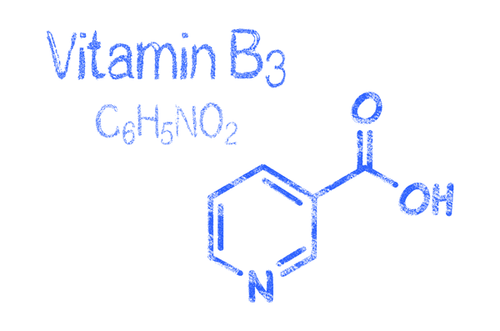
2.2. Antioxidative Action
Niacin-containing enzymes involved in energy metabolism also play a role in neutralizing free radicals through NAD and NADP. This process not only supports energy synthesis but also protects the body from oxidative tissue damage. While often overlooked, the antioxidative properties of niacin have been extensively studied, particularly in individuals with diabetes.
3. 16 Foods Rich in Niacin (Vitamin B3)
Since the body cannot produce niacin on its own, dietary intake is vital. Here are 16 foods high in niacin that can help meet your daily requirements:
3.1. Liver
Liver is one of the richest natural sources of niacin. An 85-gram serving of cooked beef liver provides about 14.7 mg of niacin, equating to 91% of the RDI for men and 100% for women.
Chicken liver is another excellent option, supplying 73% of the RDI for men and 83% for women in the same portion size.
Liver also contains other essential nutrients, including protein, iron, choline, vitamin A, and other B vitamins.
3.2. Chicken Breast
Chicken, especially the breast, is a great source of both niacin and lean protein. A cooked, skinless, boneless 85-gram serving provides 11.4 mg of niacin, meeting 71% of the RDI for men and 81% for women. In comparison, the same portion of chicken thighs contains only half as much niacin.
Chicken breast is also a rich source of lean protein, with approximately 8.7 grams of protein per 28 grams of cooked meat, making it ideal for low-calorie, high-protein diets aimed at weight loss.
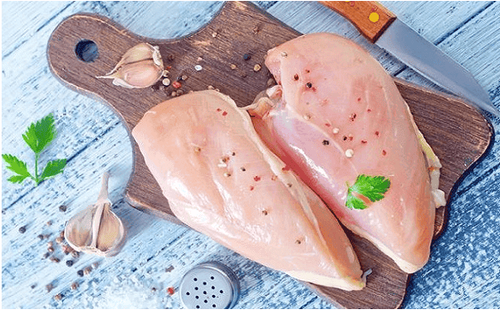
3.3. Tuna
Tuna is an excellent source of niacin and a great choice for seafood lovers. A 165-gram can of tuna provides 21.9 mg of niacin, exceeding 100% of the RDI for both men and women. Additionally, tuna is rich in protein, vitamin B6, vitamin B12, selenium, and omega-3 fatty acids.
However, concerns about mercury toxicity in tuna exist, so consuming one can per week is generally considered safe for most individuals.
3.4. Turkey
Although turkey contains less niacin than chicken breast, it is high in tryptophan, an amino acid that can be converted into niacin. An 85-gram serving of cooked turkey breast provides 6.3 mg of niacin, along with sufficient tryptophan to synthesize an additional 1 mg of niacin. Together, this provides about 46% of the RDI for men and 52% for women.
Tryptophan is also used in the production of serotonin and melatonin, which are crucial for mental health.
3.5. Salmon
Salmon, especially wild-caught, is another excellent niacin source. A cooked 85-gram serving provides 53% of the RDI for men and 61% for women, compared to 42% and 49% for farmed salmon, respectively.
Salmon is also rich in anti-inflammatory omega-3 fatty acids, which lower the risk of cardiovascular and autoimmune diseases.
3.6. Anchovies
Affordable and nutrient-dense, anchovies are a great niacin source. Just 10 anchovies can provide half of your daily niacin requirements. They are also an excellent source of selenium, which may reduce the risk of cancers such as breast, lung, stomach, and prostate cancer.
3.7. Pork
Lean pork is another good source of niacin. An 85-gram serving contains 6.3 mg of niacin, meeting 39% and 45% of the RDI for men and women, respectively.
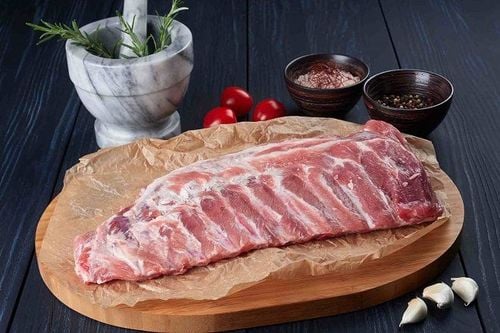
Pork also supplies thiamine, vitamin B1, which is essential for metabolic processes.
3.8. Beef
Lean beef is not only rich in niacin but also contains many other essential nutrients such as protein, iron, vitamin B12, selenium, and zinc. Each 85 grams of cooked lean beef provides 6.2 mg of niacin.
Some studies also indicate that beef contains significant amounts of omega-3 fatty acids and antioxidants, especially grass-fed beef.
3.9. Peanuts
Peanuts are one of the best plant-based niacin sources. Thirty-two grams of peanut butter contain 4.3 mg of niacin, providing 25% of the RDI for men and 30% for women.
Peanuts are also rich in protein, healthy fats, vitamin E, vitamin B6, magnesium, phosphorus, and manganese. Consuming peanuts daily has been shown to lower the risk of type 2 diabetes without contributing to weight gain.
3.10. Avocado
A medium-sized avocado contains 3.5 mg of niacin, equivalent to 21% and 25% of the recommended daily intake for men and women, respectively. Avocados are also rich in fiber, healthy fats, various vitamins, and minerals. In fact, an avocado contains twice the potassium content of a banana.
Avocados are also an excellent source of monounsaturated fats, which may help reduce the risk of cardiovascular diseases when consumed regularly.
3.11. Brown Rice
One cup (195 grams) of cooked brown rice contains 18% of the RDI for men and 21% for women. However, studies show that only about 30% of the niacin in grains is bioavailable.
Brown rice also contains fiber, thiamine, vitamin B6, magnesium, and selenium, which contribute to its anti-inflammatory and heart health benefits.
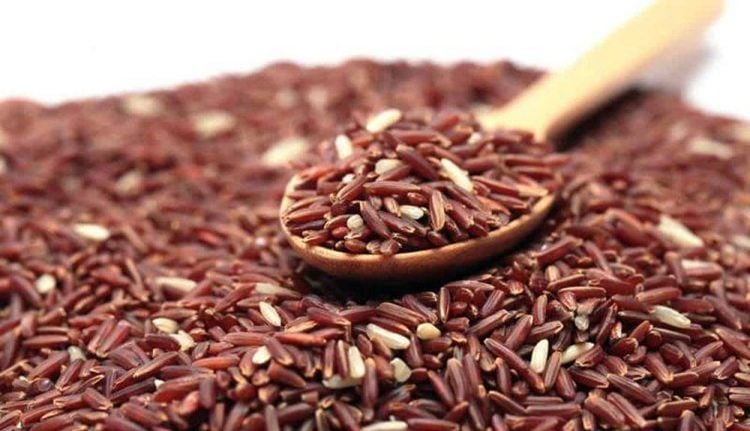
3.12. Whole Wheat products
Whole wheat products, such as bread and pasta, contain niacin, especially in the bran layer. However, like brown rice, only about 30% of the niacin in wheat is bioavailable.
3.13. Mushrooms
Mushrooms are one of the best plant-based sources of vitamin B3. Each 70 grams of mushrooms provides approximately 15–18% of the recommended daily intake, making them an ideal choice for vegetarians.
Mushrooms grown under sunlight also have the ability to synthesize vitamin D, making them one of the best plant-based foods containing this vitamin.
3.14. Green Peas
Green peas are also an effective and easily absorbed plant-based source of niacin. Additionally, like other legumes, green peas are rich in fiber. Each cup of green peas provides about 25% of the daily fiber requirement.
Further studies have shown that green peas contain many antioxidants and other compounds that may reduce the risk of cancer, lower cholesterol levels, and promote the growth of beneficial gut bacteria.
3.15. Potatoes
Potatoes are also a good source of niacin. A single potato provides 4.2 mg of niacin, which is equivalent to 25% of the recommended daily intake for men and 30% for women.
According to a review, russet potatoes have the highest vitamin B3 content among potato varieties, with 2 mg of niacin per 100 grams. Sweet potatoes are also a comparable source of niacin to white potatoes.
3.16. Fortified Foods
Many foods are fortified with niacin, making them rich sources of this nutrient.
Refined grains and grain products, such as bread and pasta, are often enriched with niacin to enhance their nutrient content. A study has shown that Americans obtain more niacin from these fortified foods than from natural sources.
Niacin can also be found in various grain products.
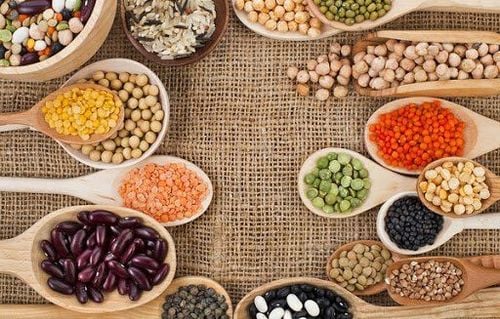
Niacin, or vitamin B3, is an essential nutrient that the body cannot synthesize on its own and must therefore be obtained through the diet. Niacin plays a direct role in metabolism and the functioning of the nervous system. Many foods are naturally rich in niacin, particularly animal-based products such as meat, fish, and poultry. Plant-based sources of niacin include avocados, peanuts, whole grains, mushrooms, green peas, and potatoes. Additionally, some foods are fortified with niacin to make them a primary dietary source of this nutrient.
To arrange an appointment, please call HOTLINE or make your reservation directly HERE. You may also download the MyVinmec app to schedule appointments faster and manage your reservations more conveniently.
References: whfoods.com, healthline.com




